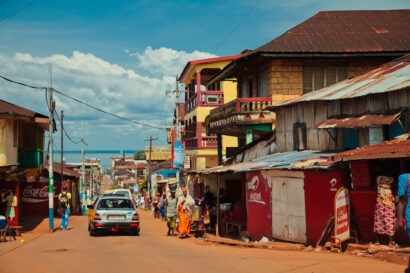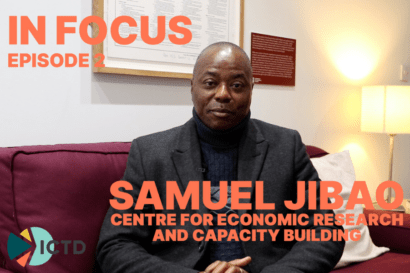This World Cities Day, the Local Government Revenue Initiative (LoGRI), an initiative of ICTD, highlights how subnational property taxes can help cities address development challenges.
From mounting infrastructure gaps to poor service delivery, to general economic instability, cities, particularly in the global South, face a host of critical development challenges and addressing these requires significant investment.
Historically, local governments have primarily relied on transfers from the central government, international assistance, and natural resource rents to fund their budgets. However, these funding sources can be highly volatile and stifle accountability to the public.
As such, local governments are increasingly looking for alternative ways to raise much-needed funds. In recent years, subnational property taxes have emerged as a potential solution to these revenue constraints.
Research have shown that property taxes have immense and largely untapped revenue potential, contributing less than 1% of GDP in developing countries and far less than 0.5% in sub-Saharan Africa. This stands in stark contrast to the highest-performing OECD countries which collect around 2% of GDP in property taxes.
The potential of property taxes
By generating sufficient own-source revenue through property taxation, local governments can lessen their dependency on the central government and foreign actors for essential funding, and thus improve their fiscal autonomy and ability to respond to citizens’ needs. Increased revenue from property taxation can also enable increased investment in public service delivery, which could then improve living conditions and stimulate economic growth.
Recognising this potential, LoGRI partners directly with local governments throughout Africa and South Asia to support their property tax reform initiatives. At present, the programme is involved in over 13 projects in nine countries, offering technical guidance and, in some cases, hands-on support.
One notable example of LoGRI’s work is its flagship project in Freetown, Sierra Leone, which demonstrates the potentially transformative effect of property tax reform in low-income countries. In collaboration with the Mayor of Freetown, Yvonne Aki-Sawyerr, LoGRI and the International Growth Centre co-piloted a comprehensive reform programme that used satellite imagery to identify and measure every property in the capital city. This exercise effectively doubled the number of properties in the tax register, from around 50,000 to over 110,000, and roughly tripled revenue, from about US$500,000 to US$1.5 million.
Given its success, this model has been similarly applied in LoGRI projects across Africa, namely in the Democratic Republic of Congo (DRC), Togo, and Côte d’Ivoire.
Further reading
Interested to learn more about property taxation in low-income countries? Check out three of our recommended reads:
- How Property Tax Would Benefit Africa (published by the Africa Research Institute), by Nara Monkam and Mick Moore
- The political economy of property tax in Africa: Explaining reform outcomes in Sierra Leone (published in African Affairs), by Samuel Jibao and Wilson Prichard
- ICTD Summary Brief 11: Strengthening IT Systems for Property Tax Reform, by Wilson Prichard and Paul Fish




